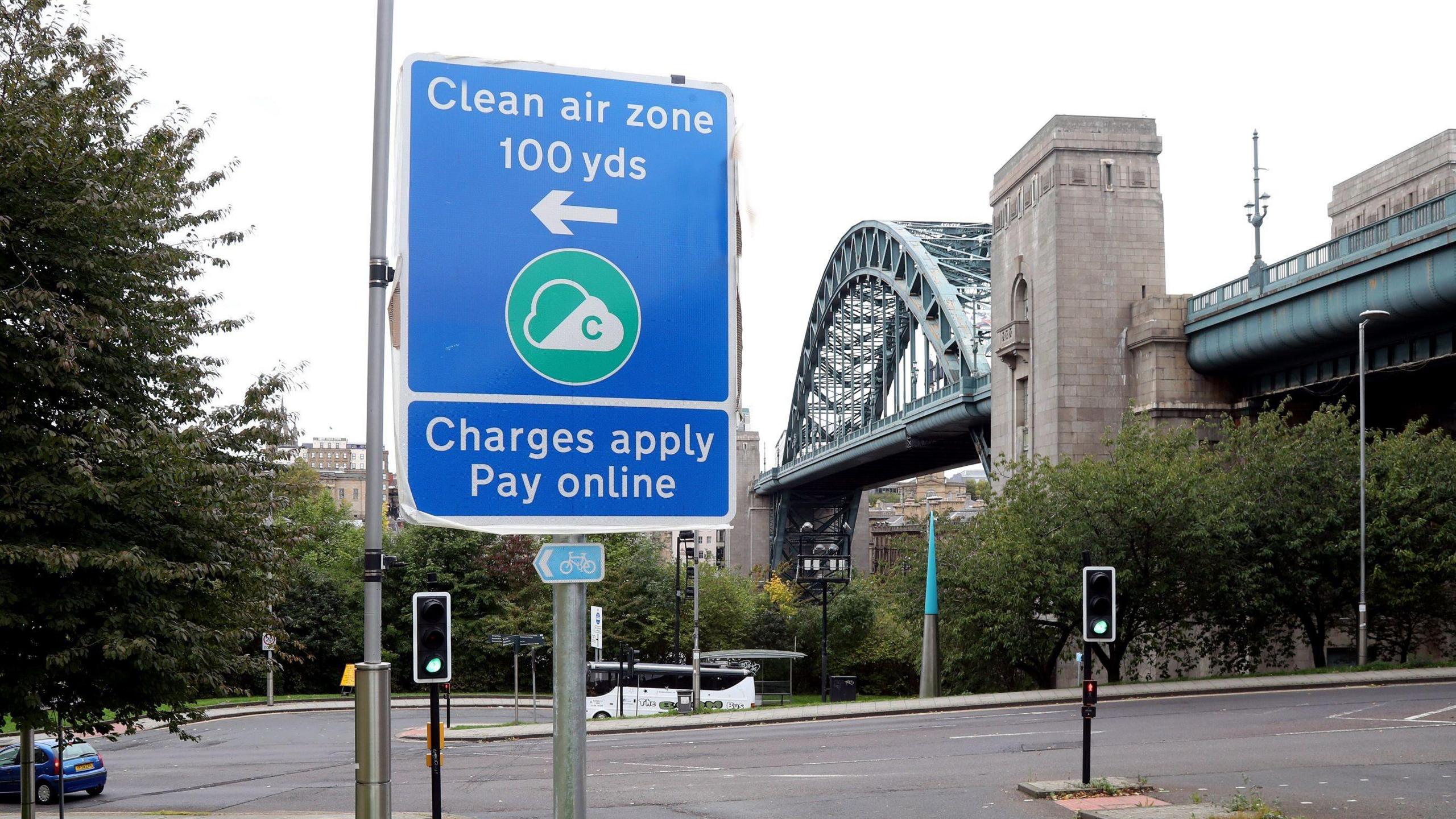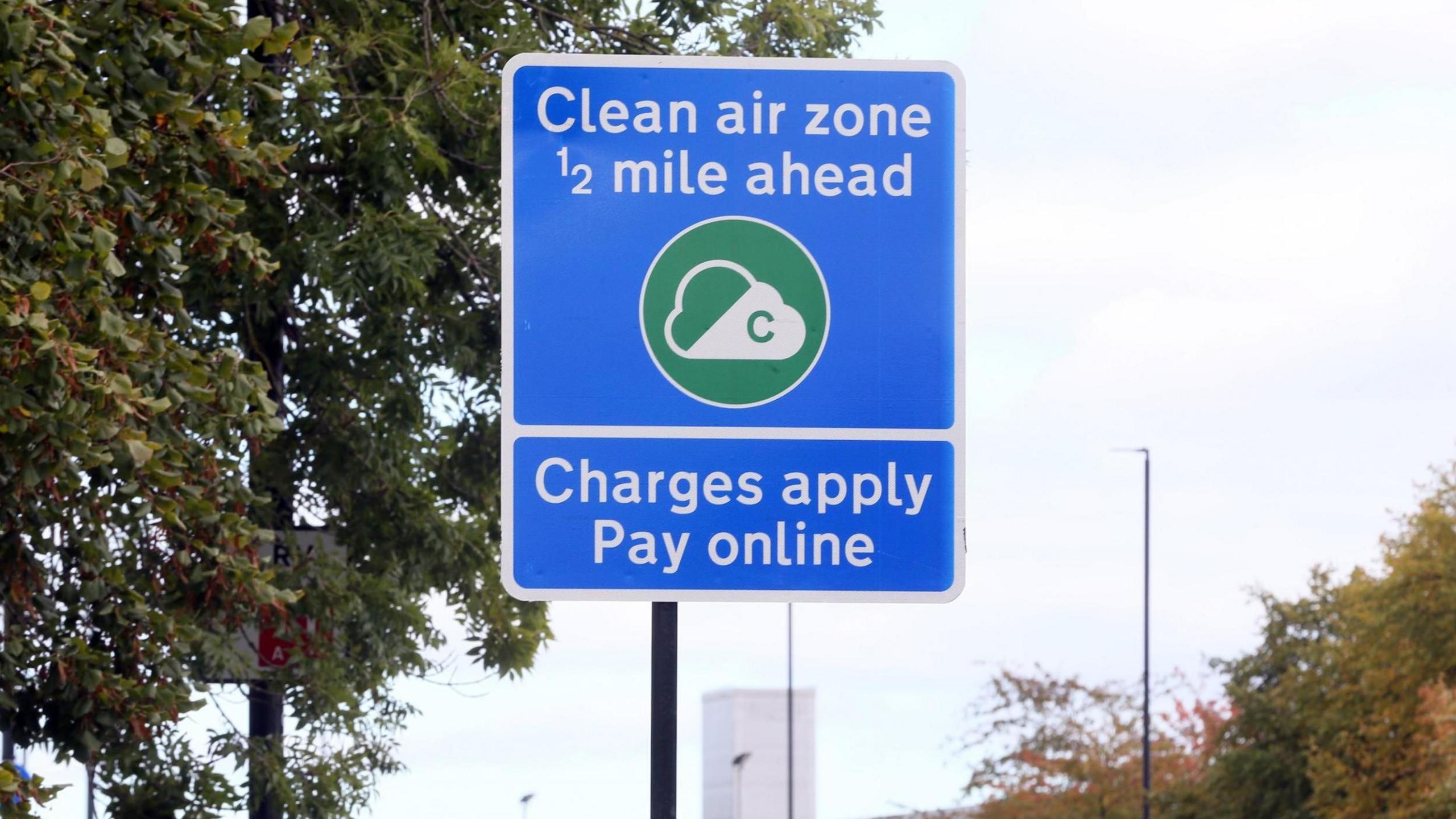Air pollution levels fall 'after clean air charge'

The council introduced charges in January 2023
- Published
Air pollution appears to have fallen across much of a city in the first year of its Clean Air Zone (CAZ) tolls, according to council data.
New figures suggest there has been a drop in the average level of nitrogen dioxide (NO2) at all but one of the 70 monitoring stations in Newcastle.
It coincides with the launch of CAZ in January 2023, in which some high-polluting vehicles are charged daily tolls of up to £50 to drive through the city centre.
However, the council said the decrease "could be due to a number of factors" and "uncertainty" remained about the scheme’s impact.
The most-polluted location in the city remains close to the Corner House junction on the Coast Road, according to the Local Democracy Reporting Service., external
A sensor at the junction of Stephenson Road and Jesmond Park West recorded an annual mean NO2 level of 67.1 micrograms per cubic metre of air (μg/m3), though that has reduced significantly from 92.2 in 2022 and 97.7 in 2021.
The UK legal maximum is 40 μg/m3 which four other roadside locations also surpass:
Percy Street – 45.9
Market Street – 42.2
Blackett Street, near Old Eldon Square – 40.9
St Marys Place, John Dobson Street – 40.3
In its report detailing the findings, the Labour-led local authority said there remained "uncertainty" about the effectiveness of CAZ.
A council spokesperson said there were a number of factors which could explain the drop in NO2 levels, such as the increase in less polluting vehicles on the road.
They also said the particularly high NO2 levels seen at Stephenson Road were roadside measurements and that "nitrogen dioxide levels in nearby residential streets are not in excess of the limit".
Campaign group SPACE for Gosforth said its analysis suggested citywide pollution levels had dropped by 16%.
A spokesperson said: [The findings] are a great advert for councils that are willing to listen to the evidence, make the case and take bold decisions to protect their residents from dangerous air pollution and other harms."
Follow BBC Newcastle on X (formerly Twitter), external, Facebook, external and Instagram, external. Send your story ideas to northeastandcumbria@bbc.co.uk.
Related topics
More stories from BBC North East and Cumbria
- Published5 June 2024
